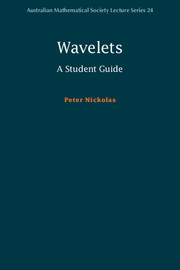Appendix: Notes on Sources
Published online by Cambridge University Press: 23 February 2017
Summary
Given the largely introductory nature of this book, the decision was made early on not to include explicit references to the literature in the main text. However, for the reader who wants pointers to sources, this appendix provides them.
It should be said that the coverage of the literature here is quite selective, and the appendix is very far from forming a literature survey. Roughly, three types of references are included. First, there are references of a general nature on certain topics, which are introduced not so much as sources for particular results in the main text but as accounts of bodies of theory as a whole. Second, there are references that are used as sources for specific results, though our formulations may be less general than those referred to. Third, there are references to advanced material that is mentioned or hinted at in the text but is beyond the scope of the text.
Some references are undergraduate-level mathematical texts, some are texts at a more advanced level, and some are expository or research articles from mathematical journals. We generally do not list sources in detail for material that is essentially standard and that is therefore covered by many texts, since the reader will have no difficulty locating suitable references. Since the focus thus tends to be on the less standard material, a consequence is that the density of our coverage of sources tends to increase from chapter to chapter.
When there are several relevant texts on a topic, the selection made here is often a personal one, and failure to mention a particular text should not be taken as implicit disparagement. Any reader who does not have access to the specific texts mentioned or prefers to look for other styles of presentation will find that numerous standard texts are available which cover virtually all the topics of Chapters 2, 3 and 4.
Chapters 1 to 4: general comments. Since Chapter 1 is the book in microcosm, all its topics are treated in more detail and with more rigour later in the book, and so we give no references specifically for this chapter. Neither do we list references for linear algebra, the subject of Chapter 2.
Information
- Type
- Chapter
- Information
- WaveletsA Student Guide, pp. 251 - 258Publisher: Cambridge University PressPrint publication year: 2017
